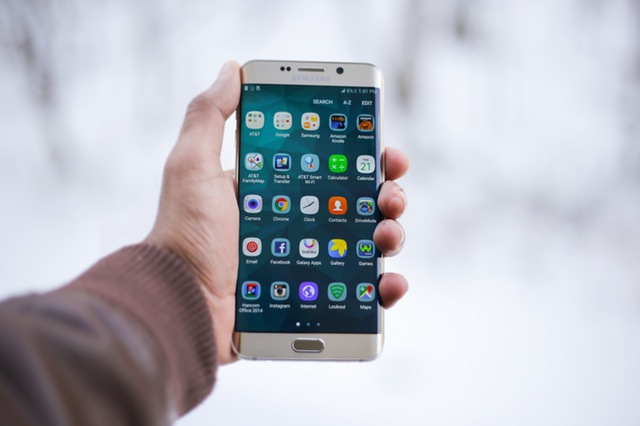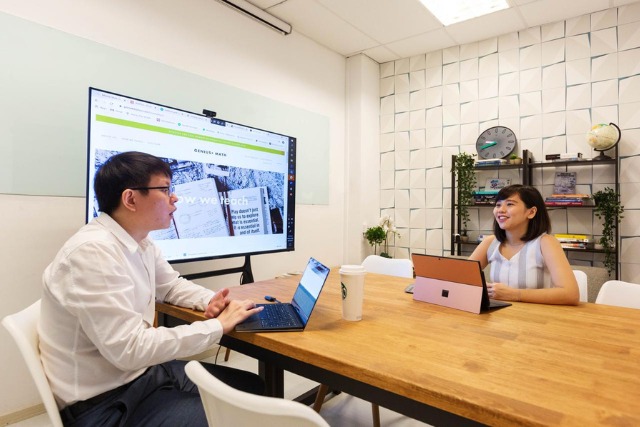Dear Mom,
It feels strange to write this letter to you for a purpose other than a birthday, but I’ll cut straight to the point. I’m writing today to talk about why I just can’t seem to get off my phone at home, at dinners or other occasions.
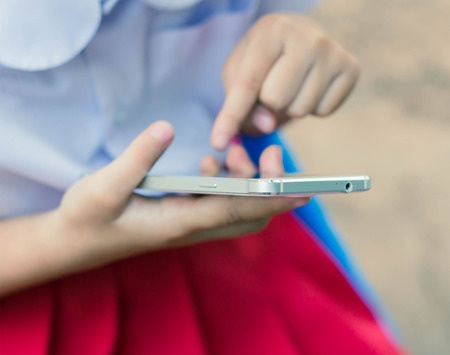
I was part of the first generation to grow up in a pretty much completely digitalised world and since then, it’s evolved at a breakneck pace. The first iPhone came out in 2007, just two years after I was born – as a toddler, I was still watching as you dropped your Nokia in the toilet, a phone rendered obsolete in today’s world.
Don’t get me wrong – you did a great job keeping me away from devices when I was young. I was never allowed to watch television till I was six, and even then, you limited it to thirty minutes, resolutely ignoring my incessant pleading. You hated these devices with a passion, I remember, scoffing at “educational” shows and iPad games.
Instead, I engaged in time-consuming activities that I now realise must have tired you out and cost you so much. I loved messy arts-and-crafts in which I’d splatter paint all over the white floor; you grimaced and cleaned up after me because we never had a helper to do the job.
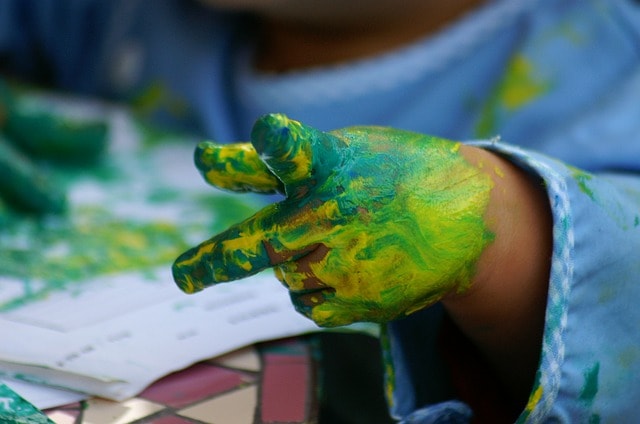
I loved to play on that rocking-horse toy I outgrew, which earned me a trip to the hospital after I fell off and almost got concussed. You brought me downstairs to play with our neighbour’s fluffy white dog, smiling the whole time to hide your profound fear of animals from me.
These sacrifices and time could’ve been easily replaced by an iPad or hours of TV, but you pushed on, believing it was the right thing to do.
And it was – I credit my relative success today to the complete lack of screen time I had as a child. Those happy days, I now know, probably weren’t as carefree for you as they were for me, but nevertheless, you’ve given me memories of my childhood that I’ll treasure through the years, even as I grow and change.
So, where did this all go wrong? When we shifted to Korea for a year in 2012, you finally relented and gave me a phone, just to keep in contact with my friends in Singapore.
➡️ Related Read: What to do in Korea With Kids
Your early influence rubbed off on me and true to my word, I never used my phone for any other purpose other than sending the odd email to a friend. I was simply uninterested because there were so many other things holding my attention.
But as I grew older, screen time became inevitable. I’d always loved to write, and my first computer, given to me in 2016, gave me the liberty to conveniently do so.
When I got into the Gifted Education Programme (GEP), I was swamped by a whole load of projects that I was expected to complete on the computer – this proved to be a challenge for the digitally-illiterate me, but I learnt fast.
I think this was when my addiction started.
I hadn’t ever been exposed to these screens when I was younger, but as I slowly uncovered their capabilities, I was entranced. It became harder to limit my device time as I passed it off for work – to be fair, most of the time, it was.
But it was those small pockets of time where I idly surfed on other websites to “take a break” that affected me the most, and retrospectively, what I preach in all my initiatives today is real.
Device addiction really isn’t about the time spent, but more of dependence on that device.
Then came the transition to Secondary One. I’m sure you’d recall that it was painful and I struggled to find my footing and place in a new environment. Our school mandated the use of computers, both in class and to complete homework. After all, technology really does bring unparalleled convenience and accessibility.

So, my laptop became an indispensable part of my everyday life. Just like that, the girl who grew up not checking her phone for weeks on end suddenly started to carry her Mac around wherever she went, to school and on family holidays.
Devices undoubtedly offer an endless stimulus, which makes them so addictive. I soon got bored of social media and turned my attention to gaming instead. I stopped reading, although that was my favourite childhood pastime because I couldn’t focus on the words any longer.
Those mood swings, aggression and my lack of attention span that you attributed to a rebellious phase, I now know stemmed from my addiction. For me, then, devices were more than just entertainment. It transcended desire – I needed them.
I craved those moving images on a static screen that provided me with an escape from reality, and an excuse for my rapidly-falling grades and total absence of social life.
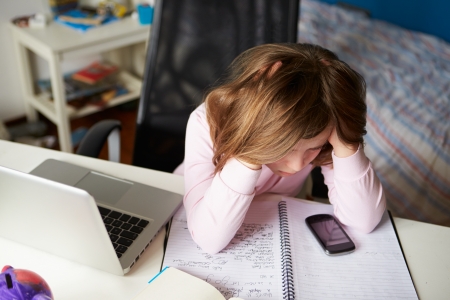
Just like all other addictions, it’s a downward spiral if it isn’t quickly arrested at the start. Maybe you trusted me too much to use my device responsibly, but when its usage becomes a necessity, it’s almost impossible to control. We danced around the topic of stopping but never committed anything to it.
⇒ Related Read: A Mother’s Battle With Her Smartphone Addiction
In 2019, I embarked on this project, which sought to tackle device addiction in children. Although I was unknowing of and unwilling to recognise my own addiction, I continued to fervently advocate and push this cause to parents in my community.
But as time passed, I realised the hypocrisy in my words – my own addiction that I blinded myself to. It was clear that I had a problem that I needed to face.
The first step, truly, is recognising the addiction and vowing to make a change. Like me, many children just don’t have the self-control needed to reduce their device usage.
I’m not trying to say that you shouldn’t have trusted me with a device – I’m just stressing that it’s so important for healthy device usage habits to be cultivated in children as soon as a device is introduced to them.
In light of the COVID-19 pandemic, my point holds truer than ever. Kids will be forced to use technology in order to learn, and this usage must be carefully monitored. My brother grew up with a little more screen time than me, but even as he completes work through the laptop now, he doesn’t exhibit any symptoms of device addiction because you control his usage so meticulously.
⇒ Related Read: How to Be a Better Parent: Keeping Our Children Safe Online
Right now, it’s probably impossible for young children to grow up as I did, with zero screen time. But that’s okay. As long as the time spent is limited and clear rules are enforced as soon as a child touches a device, it’s more than possible to keep addiction at bay.
A total lack of exposure doesn’t negate addiction in the future. Instead, it’s important to equip them with healthy device usage habits, so they keep safe as they grow up in an era in which technology dominates.

In a sense, we grew up together, and it’s only natural that you’d have made a few mistakes. That’s why I’m writing this open letter now, hoping that my audience wouldn’t make the same mistakes as we did.
By sharing my own experiences and feelings, I sincerely hope that I manage to carry across the true importance of inculcating the correct usage habits and enable children growing up now to safely harness the potential of technology.
Sincerely,
Your formerly device-addicted daughter
![]()
Thanks for reading this letter to the end! To provide a little background, I’m part of a Community-Problem Solving (CmPS) team from Raffles’ Girls School aiming to prevent device addiction in Singaporean children aged 5-9.
To learn more about the symptoms, effects and prevention methods of device addiction, please visit our website (http://tinyurl.com/projectdevice), or pose a question on our anonymous forum (http://tinyurl.com/projectdeviceforum). For questions related to staying safe through this period of increased mandatory device use, please visit http://tinyurl.com/projectdevicehbl. Thank you and stay safe!
* * * * *
Stay in touch! Subscribe to our Telegram here for all our latest updates.
Like what you see here? Get parenting tips and stories straight to your inbox! Join our mailing list here.











































